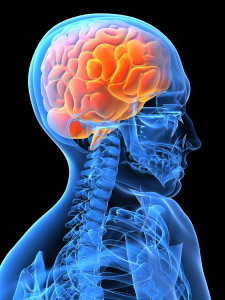 Stress affects all of us in different ways. We can have physical, psychological, emotional, or behavioral reactions to stress. However, the long-term effects of stress on the body are sometimes most damaging. It all begins in the brain.
Stress affects all of us in different ways. We can have physical, psychological, emotional, or behavioral reactions to stress. However, the long-term effects of stress on the body are sometimes most damaging. It all begins in the brain.
Our brains are hard-wired to detect possible threats. When we perceive a threat or a problem the cerebral cortex, responsible for thinking in our brain, activates the hypothalamo-pituitary-adrenal (HPA) axis. The HPA axis is made up of the three parts that control our responses to stress; the hypothalamus (in the brain), the pituitary (in the brain), and the adrenal glands (right above your kidneys). These are the parts responsible for releasing hormones such as adrenaline and cortisol in the body.
Other reactions begin to take place in our bodies such as increased heart rate, breathing rate, tension in muscles, and blood pressure. Blood begins to flow into the large body muscles to prepare to fight or run and out of the digestive system and the extremities causing cold feet and hands. Digestion stops and the diaphragm and anus tighten. Our vision and hearing also become sharper. All of these changes in the body equate to a heightened sense of awareness.
All it takes for these changes to be triggered in the body is for our brain to perceive a threat or a problem. When we suffer from chronic stress and our bodies are continuously in stress response our hormones can slow down the reproduction, digestion, tissue repair, and immune systems that we need to maintain health. This is what contributes to stress-related diseases such as high blood pressure, migraines, ulcers, diarrhea, irritable bowel syndrome, loss of libido, asthma, bronchitis, and many others.
Since just the mere perception of a threat is responsible for all of the chemical and physical changes in our bodies we should make sure we are only eliciting the stress response during actual times of duress. Our modern, fast-paced, and technology ridden lives sometimes induce a stress response much like the one we would have during a divorce, loss of a loved one, or a major life change. Instead, we should re-evaluate our perceptions of the slow driver in front of us, the abrasive person on the other end of the phone line, or the thunderstorm during your vacation. Find new meanings to your experiences and your brain and body will thank you.
Comments
Powered by Facebook Comments

Connect with Us on These Sites